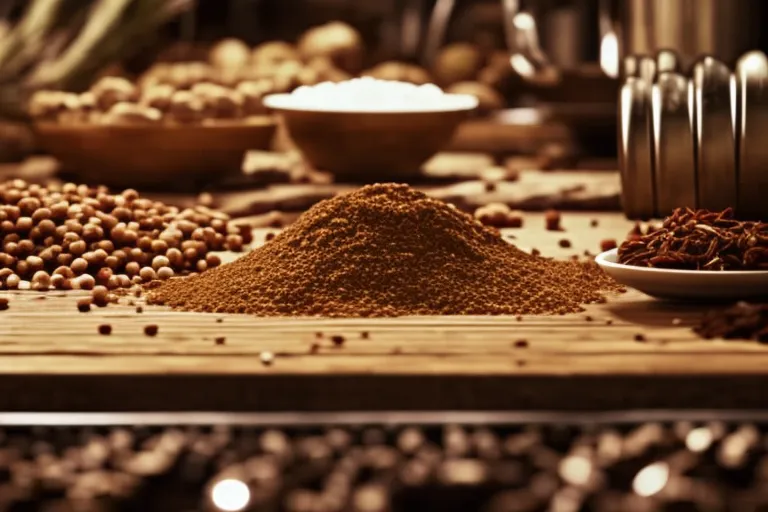If you're looking for a delicious and hearty meal that's easy to make, look no further than chakhokhbili. This traditional Georgian dish is made with chicken, tomatoes, onions, and a variety of spices, and it's perfect for a cozy night in or a family dinner.
What is Chakhokhbili?
Chakhokhbili is a stew that originated in Georgia, a country in the Caucasus region of Eurasia. The dish is made with chicken, onions, tomatoes, and a variety of herbs and spices, and it's typically served with bread or rice.
The word "chakhokhbili" comes from the Georgian word "khokhobi," which means "pheasant." This is because the dish was originally made with pheasant meat, which was plentiful in Georgia's rural areas. Over time, chicken became the more common meat used in the dish, but the name stuck.
The History of Chakhokhbili
Chakhokhbili has been a staple of Georgian cuisine for centuries. The dish is believed to have originated in the Kakheti region of Georgia, which is known for its wineries and agricultural products.
According to legend, chakhokhbili was first made by hunters who would cook the birds they caught in a stew with tomatoes and other ingredients. Over time, the dish became popular throughout Georgia and is now considered a national dish.
In addition to being a popular home-cooked meal, chakhokhbili is also a common dish served at Georgian feasts and celebrations, such as weddings and New Year's Eve parties.
How to Make Chakhokhbili
Making chakhokhbili is relatively easy, and the dish can be customized to suit your taste preferences. Here's a basic recipe to get you started:
Ingredients:
- 1 lb. boneless, skinless chicken thighs, cut into bite-sized pieces
- 2 large onions, chopped
- 4 large tomatoes, chopped
- 3 cloves garlic, minced
- 1 tsp. ground coriander
- 1 tsp. ground fenugreek
- 1 tsp. dried marigold petals
- 1 tsp. salt
- 1/2 tsp. black pepper
- 1/4 cup chopped fresh cilantro
Instructions:
- Heat a large pot or Dutch oven over medium heat.
- Add the chicken to the pot and cook until browned on all sides, about 5-7 minutes.
- Remove the chicken from the pot and set it aside.
- Add the onions to the pot and cook until they are translucent, about 5 minutes.
- Add the garlic to the pot and cook for an additional 1-2 minutes.
- Add the tomatoes to the pot and stir to combine.
- Add the coriander, fenugreek, marigold petals, salt, and black pepper to the pot and stir to combine.
- Add the chicken back to the pot and stir to combine.
- Reduce the heat to low and simmer the stew for 30-40 minutes, or until the chicken is cooked through and the sauce has thickened.
- Stir in the chopped cilantro just before serving.
Tips for Making the Perfect Chakhokhbili
- Use fresh, ripe tomatoes for the best flavor.
- Don't skimp on the spices – they're what give chakhokhbili its unique flavor.
- If you prefer a thicker sauce, you can add a tablespoon of flour or cornstarch to the pot before adding the chicken back in.
- Chakhokhbili can be made with other meats, such as lamb or beef, if you prefer.
Serving Chakhokhbili
Chakhokhbili is traditionally served with bread or rice, but you can also serve it with potatoes or other grains. A side salad or some pickled vegetables would also complement the dish nicely.
If you're looking for a traditional Georgian meal, you can serve chakhokhbili alongside other Georgian dishes, such as khachapuri (cheese bread) or lobio (bean stew).
Health Benefits of Chakhokhbili
In addition to being delicious, chakhokhbili is also a healthy meal option. Chicken is a good source of protein, and tomatoes are rich in vitamins and antioxidants. The herbs and spices used in the dish also have health benefits – for example, coriander is known to aid digestion, while fenugreek has been shown to help regulate blood sugar levels.
Conclusion
Chakhokhbili is a delicious and hearty dish that's perfect for a cozy night in or a family dinner. Whether you're a fan of Georgian cuisine or you're looking to try something new, chakhokhbili is sure to satisfy. So why not give it a try? Your taste buds – and your body – will thank you.
